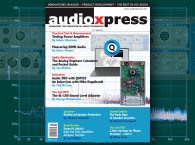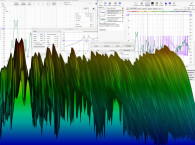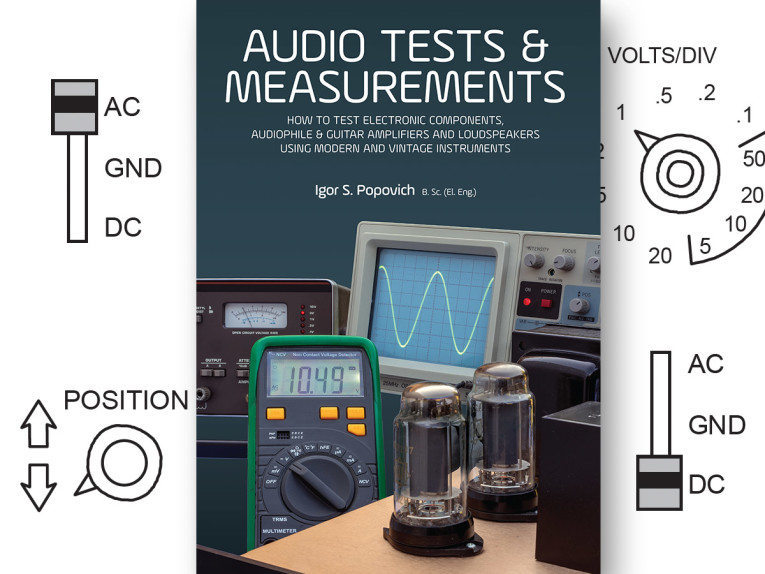
Books about designing and building audio equipment are a dime a dozen (figuratively speaking), treating solid state, tubes, analog, digital, what have you. But a book that focuses on measuring all those designs is rare. This is one of those books, written by a relatively unknown (in our neck of the woods) author Igor Popovitch. Popovitch, it turns out, is quite a prolific author, as he also wrote many books about designing audio equipment—a quick look at Amazon lists at least 10 books authored by him.
This particular book, Audio Tests & Measurements, runs about 180 pages, but that is deceiving as the book’s format (A4 size) is about twice the size of most soft cover books. So as to the contents, it is better considered a 360-page book, or even more as the margins are quite small. So let’s call it a 400-page book.
This book covers a very wide field of measurement-type methods. Sensibly, it kicks off with a chapter on test instruments, errors, limitations, and safety issues. Subsequent chapters discuss test equipment such as signal sources, signal tracing, power supplies, filters, multimeters, and oscilloscopes.
Then Popovitch moves on to actual tests and measurements: testing passive components, (pre)amplifiers, distortion measurements, transformers, loudspeakers, curve traces (solid state as well as tubes), and tube testing.
When I started reading this book, I had some ambivalent feelings about its value. The author makes it very clear at the beginning of the book that he focuses on explaining measurement methods and not necessarily providing user guides for test equipment.
The examples and use cases often show what he calls vintage test equipment, such as the venerable HP89903A analog distortion analyzers and even Heathkits. He briefly mentions digital oscilloscopes, but not PC-based oscilloscopes or instruments. On the other hand, the chapter titled, “Oscilloscopes, how they work and how to use them” is a gem and almost worth the price of the entire book. And, the section he calls “A crash course on oscilloscope controls” should be mandatory reading for anyone entering this field (Figure 1).
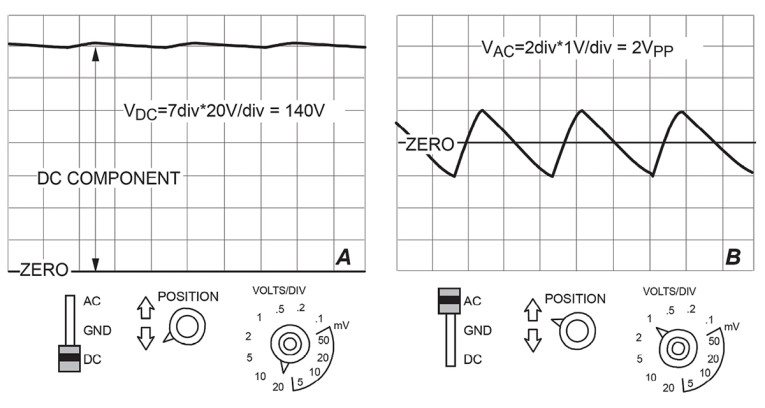
The chapter on distortion measurements treats all the usual measurements such as total harmonic distortion (THD) and THD+N (noise), using spectrum analyzers, selective voltmeters or fast Fourier transform (FFT) processing to study individual harmonics, and the concept and measurement of intermodulation distortion (IMD) as shown in Figure 2.
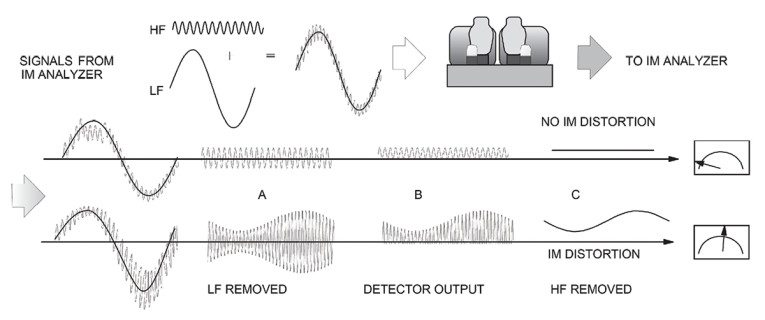
And that leads us to the question: At which audience is this book aimed? Popovitch himself gives the answer. The book is a great resource for the audiophile interested in the technical side of hi-fi equipment and its testing. If you are a guitar player interested in modifying, repairing, or even building your own equipment, you can make a head start with this book. But even electrical engineering students should find lots of value in this book as it explains test and measurement concepts in a straightforward no-nonsense way, with emphasis on practical measurements instead of overwhelming theory. This also means that the test equipment discussed is generic and leaves the prospective readers free to use or select the equipment they might have accessible.
So, as I worked through this book, my initial ambivalence gave way to enthusiasm. If you recognize yourself in the intended audience as discussed, this book will help you get a fast start in this field. As your experience and understanding grows, you probably want to go into more detail, but then you’ve obtained a solid knowledge base and you can build upon that.
Check it out. aX
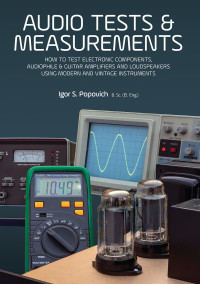 Audio Tests & Measurements
Audio Tests & MeasurementsBy Igor S. Popovitch
Revised edition 2022
Career Professionals, Canning Vale, Australia
ISBN-13: 9780980622393
$60 from Amazon or Barnes & Noble
This article was originally published in audioXpress, May 2023.






